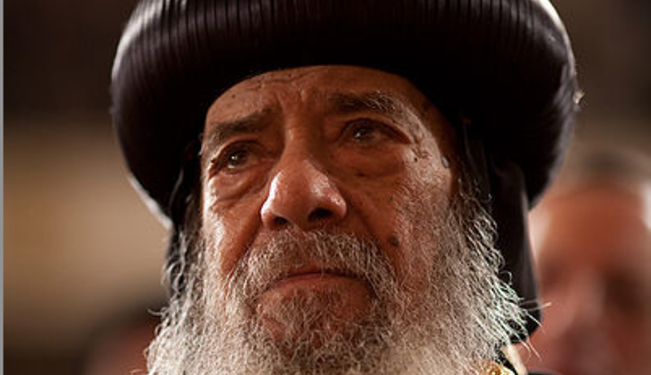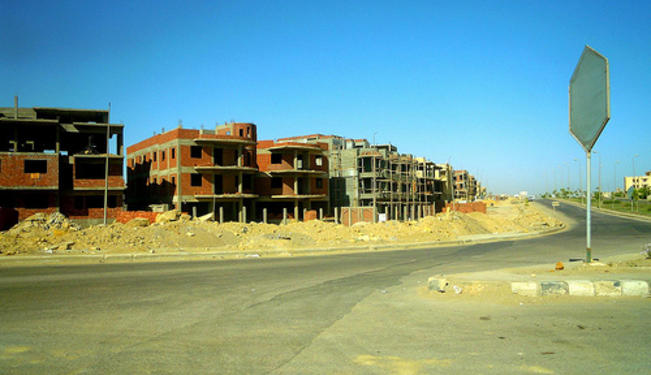The political challenges that lie ahead for the next head of Egypt’s Coptic Church. Two months from now, the Coptic Church will have a new patriarch to shepherd its flock through the social and political storms in Egypt. Becoming the new patriarch in such a sensitive political and religious situation is a task that requires the capabilities of an extraordinary person. To be the patriarch of the Coptic Church is to be the spiritual and political leader of 10mn Egyptians. The patriarch of that ancient church has usually been treated as the representative and leader of Copts before the Emperor, Caliph, or president’s court. He is the leader of 9% of Egypt’s population. The Copts are subject to his decisions - even the ones that might otherwise be hard to swallow - since they are sanctified by his religious halo. Four controversial decades after Pope Shenouda III‘s ascent to the papal throne, the coming patriarch finds himself obliged to occupy a politically powerful place at a decisive moment in the history of Egypt; the election of the first post-Mubarak era president, and the drafting of the new constitution of Egypt, are imminent. Before his death, Shenouda III expanded the power of his religious office to become influential in the formation of Egyptian political life. His warm relationship with the former regime involved him as a political leader in the different elections, and he had the ability to guide the political behaviour of millions of Copts. This guidance was usually in favour of the candidates of the former ruling National Democratic Party (NDP). However, the fall of Mubarak’s NDP and the escalation of the Coptic protests against the idea of confining Copts politically under the wing of the church, made the timing of Shenouda’s death seriously problematic for the Church. The next patriarch will face conflicts within the body of the Church. Shenouda oppressed tensions between the different rivals within the clergy, but now these conflicts will rise to the surface during the patriarchal elections. Furthermore, the coming Patriarch has to face the increasing number of voices calling for the liberation of Copts from the political influence of the Church hierarchy, which will shake the power of the Church in the long run. The uncertain political situation needs a positive contribution by the Church. The patriarch will face the fact that Islamists have taken over the Egyptian parliament. While Copts were busy preparing for the funeral of one of their most powerful leaders in the modern history of Egypt, parliament voted on a new resolution which states that 50% of the constitution drafting committee will be from parliament (i.e. Muslim Brotherhood and Salafists). This means the Church will face the challenge of protecting the rights of Christians in the articles of the constitution, which is expected to witness an expansion of the presence and power of Islamic law. Islamic law is not the only challenge. When the second article of the former constitution, which states that Islamic law is the principle source of legislation, was subject to a heated debate few years ago, Shenouda proposed an amendment that would preserve the right of non-Muslims to be legislated according to their laws. By this, Shenouda meant to leave no room for Copts to appeal to the civil courts as an alternative to the Church law. Will the new patriarch be able to push forward in the same direction while the number of voices against the full authority of the Church over Copts in social matters, such as divorce and remarriage, is increasing? The power of the Coptic patriarch is well recognised by the different political groups who understand that the patriarch can influence the choice of the coming president. The past month witnessed several visits to Shenouda by figures from the spectrum of the political movements. The last visit to Shenouda was paid by the “Guide” of the Muslim Brotherhood, Muhammed Badi. They all endeavoured to win the Church, or otherwise neutralise its influence, in the coming presidential elections. However, Shenouda passed away and the coming patriarch is expected to carry on the negotiations with these politicians. Because the politicians know that Shenouda’s power held together the different rivals who have different agendas, his death means that they have to interfere in the patriarchal elections in order to support their favoured ones who will cooperate with them in the presidential elections. The Supreme Council of Armed Forces (SCAF) also aims to have a patriarch who avoids conflict between the church and the state and keeps the warm relationship between the SCAF, considered as the last surviving part of Mubarak’s regime, and the Church. In such a situation, the Coptic synod is expected to have close meetings with the different political blocs and the SCAF, which will never tolerate choosing a patriarch who is unlikely to comply with his predecessor’s political approach. The SCAF will also not tolerate the potential instability of the Church during these months. Before Shenouda III’s funeral was even conducted, SCAF representatives had already started visiting the different bishops and went to the meeting of the Holy Synod that will govern the Church for the next two months until the successor is announced. Whether the next patriarch is from among the main figures that surrounded Shenouda or not, it is expected that he will not be able to do the job without forming a close relationship with the different groups that are concerned about the political future of Egypt as a whole.
The views expressed in this article are the author's own and do not necessarily reflect Fair Observer’s editorial policy.
For more than 10 years, Fair Observer has been free, fair and independent. No billionaire owns us, no advertisers control us. We are a reader-supported nonprofit. Unlike many other publications, we keep our content free for readers regardless of where they live or whether they can afford to pay. We have no paywalls and no ads.
In the post-truth era of fake news, echo chambers and filter bubbles, we publish a plurality of perspectives from around the world. Anyone can publish with us, but everyone goes through a rigorous editorial process. So, you get fact-checked, well-reasoned content instead of noise.
We publish 2,500+ voices from 90+ countries. We also conduct education and training programs
on subjects ranging from digital media and journalism to writing and critical thinking. This
doesn’t come cheap. Servers, editors, trainers and web developers cost
money.
Please consider supporting us on a regular basis as a recurring donor or a
sustaining member.
Support Fair Observer
We rely on your support for our independence, diversity and quality.
Will you support FO’s journalism?
We rely on your support for our independence, diversity and quality.










